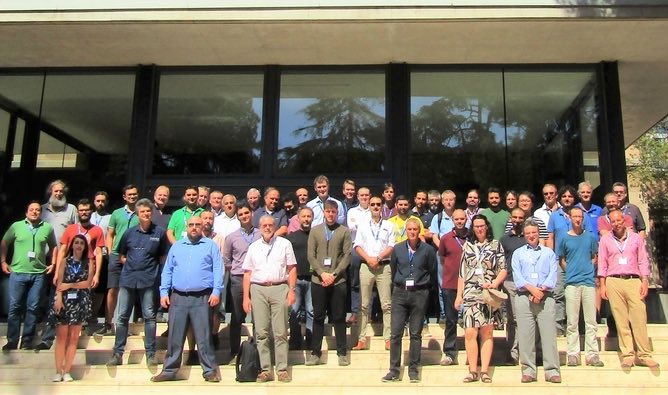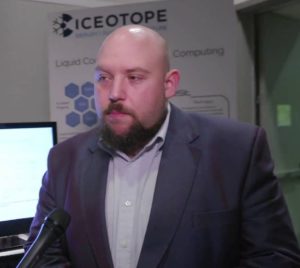
Today, 16 organizations met at the Barcelona Supercomputer Centre to mark the start of the EuroEXA project and the commencement of the execution in the next stage of EU investment towards realizing Exa-Scale computing in Europe.
To deliver the demands of next generation computing and Exa-Scale HPC, it is not possible to simply optimize the components of the existing platform,” said John Goodacre, Professor of Computer Architectures at the University of Manchester. “In EuroEXA, we have taken a holistic approach to break-down the inefficiencies of the historic abstractions and bring significant innovation and co-design across the entire computing stack.”
The growing importance of HPC technology was recently reinforced with ministers from nine European countries (France, Germany, Italy, Luxembourg, Netherlands, Portugal, Spain, Belgium and Slovenia) signing a declaration to support the next generation of computing and data infrastructures, a European project of the size of Airbus in the 1990s and of Galileo in the 2000s. The aim is to deploy the integrated world-class high-performance computing infrastructure capable of a billion, billion calculations per second, known as an Exa-Scale system. This will be available across the EU for scientific communities, industry and the public sector, no matter where the users are located.
EuroEXA is a program that represents a significant EU investment to innovate across a new ground-breaking platform for computing in its support to deliver Exa-Scale computing. Originally the informal name for a group of H2020 research projects, ExaNeSt, EcoScale and ExaNoDe, EuroEXA today announces an EU investment in European excellence to further develop these technologies in its bid to deliver EU based supercomputers.
This €20m investment over a 42-month period is part of a total €50m investment made by the EC across the EuroEXA group of projects supporting research, innovation and action across applications, system software, hardware, networking, storage, liquid cooling and data centre technologies. Together bringing the technologies required to enable the digital economy, the future of computers, and the drive towards Exa-Scale capability.
Funded under H2020-EU.1.2.2. FET Proactive (FETHPC-2016-01) as a result of a competitive selection process, the consortium partners bring a rich mix of key applications from across climate/weather, physics/energy and life-science/bioinformatics. The project objectives include to develop and deploy an ARM Cortex technology processing system with Xilinx Ultrascale+ FPGA acceleration at peta-flop level by 2020, it is hoped that this will enable an Exa-Scale procurement for deployment in 2022/23.
Peter Hopton, Founder and Technology Director at Iceotope
This is a world class program that aims to increase EU computing capabilities by 100 times, the EuroEXA project is truly an exceptional collection of EU engineering excellence in this field,” said Peter Hopton, Founder of Iceotope and Dissemination Lead for EuroEXA. “We have all set our ultimate goal – to enable the power-efficient delivery of the world’s biggest supercomputer.”
As part of the H2020 competitive process, the 16 organizations of EuroEXA have been selected for their technologies and capabilities from across 8 Countries: ARM – UK, ICCS (Institute Of Communication And Computer Systems) – Greece, The University Of Manchester – UK, BSC (Barcelona Supercomputing Center) – Spain, FORTH (Foundation For Research And Technology Hellas) – Greece, The Hartree Centre of STFC – UK, IMEC – Belgium, ZeroPoint Technologies – Sweden, Iceotope – UK, Synelixis Solutions Ltd – , Maxeler Technologies – Greece, Neurasmus – Netherlands, INFN (Istituto Nazionale Di Fisica Nucleare) – Italy, INAF (Istituto Nazionale Di Astrofisica) – Italy, ECMWF (European Centre For Medium-Range Weather Forecasts) – International, And Fraunhofer – Germany.




